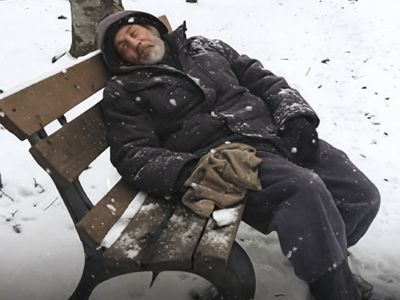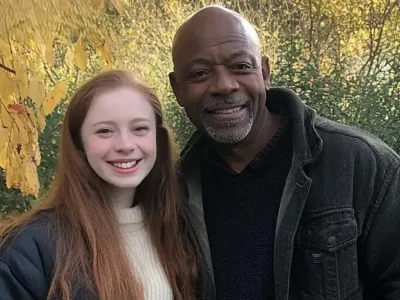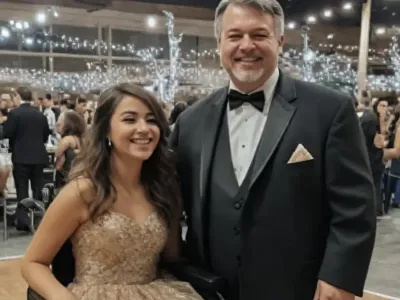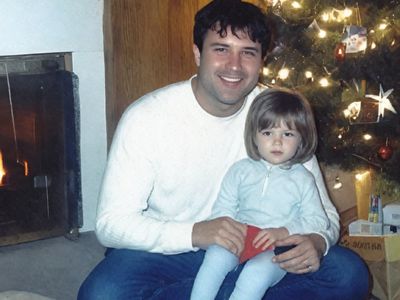Son Kicks Out His Father Because He Refuses to Pay Rent to Stay In His House
For many years, I harbored a deep desire for revenge against my father. He had abandoned me during the most vulnerable time of my life, and I couldn't forgive him. But when life presented me with the opportunity to retaliate, I hesitated.
One day, I opened the door and found someone standing there who I hadn’t expected to see: my dad. It had been years since I last saw him, and truthfully, I hadn’t wanted to see him ever again.
“Hi, son. I’m sorry for showing up unannounced. I tried calling you, but you didn’t answer,” he said cautiously.
“What do you want?” I replied curtly.
“I was hoping… maybe I could stay with you for a while. I don’t have anywhere to go right now.”
“You can stay—but you’ll need to pay rent,” I shot back.
“I don’t have any money,” he admitted. “You’re the only person I can turn to.”
“I don’t care,” I said coldly, my chest tightening with anger. “You can live on the street for all I care. I wish it had been you instead of Mom!”
With that, I slammed the door. My wife, Julie, had witnessed the entire interaction. She was visibly upset, though she didn’t fully understand the pain I carried from my history with my father. She urged me to explain, so I did.
The story began when I turned 18. My mother had passed away two years prior, and my dad was still adjusting to being both a father and a mother. He had thrown a surprise birthday party for me, which seemed like a kind gesture at the time. But after the celebration, he brought up something completely unexpected.
He asked me what I was planning to do about my living situation. I was stunned. “What do you mean?” I asked.
He explained that now that I was an adult, if I wanted to continue living in his house, I would need to pay rent. I couldn’t believe what I was hearing. Pay rent to my own father? It felt like betrayal.
He reasoned that it was part of growing up and that I needed to learn responsibility. But when I mentioned moving into a college dorm instead, he told me he couldn’t afford to pay for my education and that I would have to figure it out myself—either by getting a job or taking out a loan.
I felt completely abandoned. I shared all of this with Julie. “That’s why I left,” I said. “I couldn’t stay with someone who treated me like that.”
Julie then revealed something I hadn’t expected: my father had reached out to her a few days earlier, and she had given him our address. She hadn’t told me because she thought it was best for me to confront the situation. She urged me to forgive him. “It’s been so long,” she said.
But I wasn’t ready. I wasn’t sure I’d ever be ready. “No, Julie,” I told her firmly. “He threw me out like I was nothing. He doesn’t deserve forgiveness.”
“He’s your father,” she pleaded.
“That doesn’t matter. You don’t understand what he put me through. My mom was the only one who ever truly loved me. She would have never let him kick me out.”
“Nick,” Julie interrupted, “have you ever considered his perspective? You lost your mother, but he lost his wife. Do you know how that affected him?”
I snapped. “I don’t want to hear it!” I shouted. Julie, on the verge of tears, fell silent. I knew she was only trying to help, but I couldn’t handle it. I stormed out to get some air.
As I walked, I passed a row of benches and saw someone lying on one. At first, I assumed it was a homeless man. But when I took a closer look, my stomach dropped—it was my dad.
“Dad, wake up! Are you okay?” I asked, shaking him gently.
He stirred and opened his eyes. “Nick? Is that you?”
“Yes, Dad. I’m sorry…”
Before I could finish, he said, “I just wanted you to do well in life. That’s all I ever wanted.”
“Take it easy, Dad. Let’s talk,” I said, sitting beside him.
Tears streamed down his face as he explained. “I thought that if you paid rent, it might motivate you to take responsibility for your life. You were just sitting around, doing nothing. I wanted to push you forward.”
He continued, his voice heavy with emotion. “I couldn’t afford to send you to college because I had invested everything into my business. I planned to pass it down to you one day, but I lost everything.”
At that moment, I understood what Julie had been trying to tell me. His actions, as painful as they were, came from a place of love and good intentions. I realized I was the only family he had left.
“Dad,” I said, my voice softening, “if it weren’t for you, I might still be sitting on that couch. You forced me out of my comfort zone, and because of that, I’ve built a great life—a job, a family. It’s all because of you.”
“I hurt you, son. I know I did,” he said. “Can you ever forgive me?”
“No, Dad,” I said, shaking my head. “It’s me who needs to ask for your forgiveness.”
In that moment, something shifted within me. I had spent years holding onto anger and resentment, but I finally let it go. I reached out my hand and helped him up.
“Let’s go home, Dad. We have a lot to catch up on.”
“Thank you, son,” he said, his voice trembling. “I love you. I’ve always loved you.”
As we walked back, I couldn’t help but smile. “By the way, you’re going to be a grandfather,” I told him.
“Wait—what? Julie’s pregnant?” he exclaimed.
From this experience, I learned some powerful lessons. We should cherish our parents, despite their imperfections. They’re human, too, and they make mistakes. Forgiveness is a gift—not just to others, but to ourselves. Holding grudges only weighs us down. When I forgave my father, I felt a sense of freedom I hadn’t known in years.





